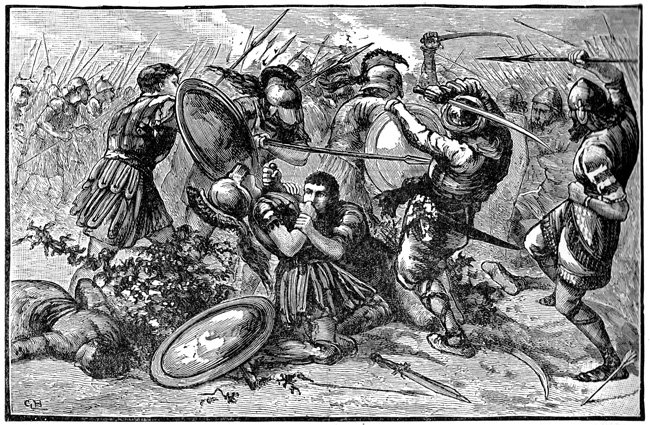
Meno (general)
Meno (/ˈmiːnoʊ/; Greek: Mένων, Menōn; c. 423 – c. 400 BC), son of Alexidemus, was an ancient Thessalian political figure, probably from Pharsalus.[1] He is famous both for the eponymous dialogue written by Plato and his role as one of the generals leading different contingents of Greek mercenaries in Xenophon's Anabasis.
In Xenophon[edit]
Meno's Beginning and Command[edit]
Meno is reported, by both Xenophon and Plato, to have been attractive and in the bloom of youth, not yet even having a beard,[2] and was quite young at his death. He had many lovers, including Aristippus of Larissa, Tharypas, and Ariaeus the Persian.[3] Xenophon gives a strongly hostile description of Meno as a disreputable, ambitious and dishonest youth, willing to commit any injustice for advancement, and immeasurably greedy for wealth[4] though Meno's actions in the Anabasis may not entirely merit such a negative portrait.[5]
In Plato[edit]
Meno appears his eponymous Platonic dialogue as a guest of Anytus accompanied by a considerable retinue of slaves.[23] Meno's stay in Athens is short and Socrates mentions that Meno is not able to stay to attend the mysteries.[24] The dialogue is probably not historical, but is meant to take place in 402 BC, shortly before Meno's Persian generalship[25] or in 401 BC, while he is en route to Persia.[26][27][28]
Socrates says that Meno is a former student of Gorgias[29] and Meno notes that he has made many speeches on virtue before large audiences.[30] He asks Socrates whether virtue can be taught, learned through experience, or comes by some other form.[31] After Socrates claims to not know the answer, he uses his Socratic method to ask a number of questions and prompt deeper thinking into the topic.[32] Meno claims that virtue must be different to each person since people have different roles in society so what they must do to uphold those roles will be different. Socrates objects to this notion and instead argues that there must be a commonality to virtue across all people.[33] Indeed, Socrates presents a series of common arguments here concerning the idea of a general form which must underlie virtue. The two are then led into complex epistemological issues of knowing, learning, and memory.